Living in Canada offers plenty of great perks. It has glorious scenery, interesting culture, a high quality of living, and plenty more.
In this guide, we’ll cover exactly what living in Canada means for expats and what you need to do to make your relocation successful.
In this guide:
- Visas and legalities of relocation: visa types, required skills, options for retirees.
- The cost of living: monthly expenses, housing, affordable areas.
- Healthcare and education.
- Where to live in Canada: an overview of the most popular expat destinations.
- Cultural highlights.
Canada’s highlights
- Economic stability: Canada is considered a good place to live due to its job security, economic stability, and environmental standards.
- High quality of life: It consistently ranks high in worldwide quality of life indexes, significantly higher than countries like the UK and USA.
- Natural beauty: Canada is home to some beautiful and very primal natural spaces. Canada’s lifestyle is all about outdoor activities, so if you’re an outdoor person, this is the place to be.
- Modern cities: The main cities such as Toronto, Montreal, and Vancouver are clean and smart, utilizing the latest technology to make them more efficient.
- Open-minded, family-friendly country: Canadian public policies are liberal and socially fair. The country is well organized and offers a lot for families with children.
- Good healthcare and education: Canada’s publicly funded healthcare system and education are available to all legal residents.
- High taxes: Canada is a high-taxation country where residents pay federal and provincial personal income tax.
- Poor public transport outside urban centers: options for getting around the country are limited. In many places, having a car is a must.
Canadian visas
There are five general visa types that you can apply for if you want to live permanently in Canada, depending on your status.
- The skilled worker and professionals class: Under this visa class, you can apply for a visa if you have a job offer already or if you want to move to work in Canada.
- Investors, entrepreneurs, and self-employed persons: This category is for people who will start a business in Canada, employ people, and generate revenue for the nation.
- Family Sponsor is designed for those with family living in Canada, as they can sponsor your relocation. If you have children who are Canadian residents, they can sponsor you to retire to Canada.
- The provincial nominee’s category is for specific skilled migrants needed in Canadian regions. Each province has different requirements and jobs: Alberta’s is the Alberta Immigrant Nominee Program (AINP); Quebec offers Quebec-selected skilled workers’ visa.
Skilled worker visa
A skilled worker visa often serves as the first step toward residency. Applications are managed through the Express Entry online system.
There are 3 immigration programs managed through Express Entry:
- Canadian Experience Class
- For skilled workers with Canadian work experience.
- Work experience must have been gained in the 3 years before you apply.
- Federal Skilled Worker Program
- For skilled workers with foreign work experience.
- Must meet criteria for education and other factors.
- Federal Skilled Trades Program
- For skilled workers who are qualified in a skilled trade.
- Must have a valid job offer or a certificate of qualification.
The program has financial requirements, too.
For a single applicant without a spouse or common-law partner and any dependent children, the minimum required savings to qualify for permanent residency is $13,757.
In the case of a couple immigrating to Canada, they must demonstrate a combined sum of $17,127 in settlement funds.
Additionally, an extra $3,706 in savings is necessary for each additional dependent family member, regardless of whether they accompany you to Canada.
Read here how Express Entry works and about the requirements you need to meet.
Most in-demand jobs in Canada
As with most industrial nations, the most in-demand jobs in Canada relate to science, construction, and healthcare. While these aren’t the only jobs that will get you a visa, they will result in much higher scores on the application.

Canada produces the Canadian Occupational Projection Scheme (COPS), which lists the jobs as the most in-demand.
For example, in previous years, the following professions were in high demand:
- Registered nurse
- Business management consultant
- College and vocational instructors
- Software engineer or designer
- Aerospace engineer
- Pharmacist
- Occupational or physiotherapy therapist
- Welder
- Licensed practical nurse
- Aircraft pilot
- Psychologist
- Industrial electrician
- Steamfitter or pipefitter
- Dispensing optician
- Construction estimator
Even in the few years since this report was released, industries have changed. For example, there’s currently massive international demand in areas like AI, machine learning, and blockchain technology.
You can check out our guide on Canadian visas for more specific information.
Retiring to Canada
While there isn’t a specific retirement visa program in Canada, there are still a number of options for moving to Canada in retirement. Regardless of which option you choose, you’ll need to prove you have the funds to support yourself while living in Canada.
For more specific information, check out our guide on retiring to Canada.
The cost of living in Canada
On a global scale, Canada is one of the more expensive countries to live in. Its cost of living is similar to the UK and USA but more expensive than most European countries.
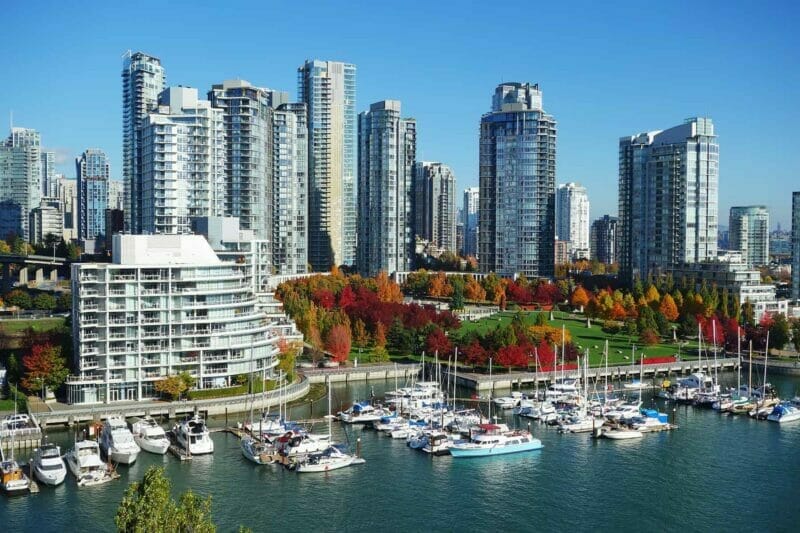
Here is the average rent for a one-bedroom apartment, average utilities, and groceries for a couple in the most popular provinces in Canada:
| Province | Average rent, One-bed apartment in CAD | Utilities | Groceries |
|---|---|---|---|
| Alberta | $1,499 | $150 | $500 |
| British Columbia | $2,389 | $100 | $600 |
| Manitoba | $1,431 | $120 | $400 |
| Nova Scotia | $2,088 | $100 | $450 |
| Ontario | $2,486 | $150 | $650 |
| Quebec | $1,970 | $130 | $550 |
| Saskatchewan | $1,115 | $140 | $600 |
Healthcare costs
Healthcare in Canada is funded through taxes and is generally free at the point of use for all legal residents. However, when you enter the country, the first three months of your stay might not be covered so you will need private health insurance.
Private health insurance in Canada costs about $756 CAD annually or about $63 CAD per month.
How much money do you need to live comfortably in Canada?
To live in Canada comfortably, a working person should ideally earn around the median income, which is currently $68,400 CAD after taxes.
Alberta and Ontario offer the highest annual salary average, but they are also the most expensive provinces in Canada.
The trickiest thing is to balance the cost of living and the income opportunities.
Canadian cities with relatively high wages and reasonable cost of living:
- Calgary:
- Median Wage: $68,700 per annum
- Cost of Living Ranking: 12th lowest in Canada
- Edmonton:
- Median Wage: $63,900 per annum
- Cost of Living Ranking: 10th lowest in Canada
- Ottawa:
- Median Wage: $67,500 per annum
- Cost of Living Ranking: 14th lowest in Canada
- Quebec City:
- Median Wage: $56,800 per annum
- Cost of Living Ranking: 2nd lowest in Canada
- Winnipeg:
- Median Wage: $54,700 per annum
- Cost of Living Ranking: 7th lowest in Canada
Public transportation
Major cities like Toronto and Montreal have subway systems, passenger trains, and extensive bus networks. Toronto takes it a step further with light-rail service as well. In the cities, it is easy to get around without a car.
Vancouver, on the west coast, is equipped with the SkyTrain system and a well-developed bus service.
Cities like Ottawa, Edmonton, and Calgary offer residents light-rail trains and comprehensive bus networks.
If you live in one of these cities, public transport is good. If you don’t, you’re going to need a car.
Driving in Canada
To drive legally in Canada, you need a provincial or territorial driver’s license, which should be carried while driving and allows you to drive across the country.

If you have a valid license from your home country, you can use it temporarily in Canada together with an International Driving Permit (IDP) , but check with your province or territory for specific rules.
All long-term residents in Canada must obtain a Canadian driver’s license. The process varies by province or territory and your driving experience, usually involving a written road rules exam and one or two driving tests.
Getting around the country
- Bus: Greyhound, Megabus, and various regional carriers offer intercity bus services. Ticket prices vary depending on the distance, but a one-way trip between major cities can range from $25 to $100 or more.
- Passenger Trains: Via Rail offers passenger train services between major cities. The price for a one-way ticket can range from $50 to $300 or more, depending on the route and class of service.
- Flights: Canada is a vast country, and air travel is often the quickest way to cover long distances. Prices for domestic flights vary widely, with short flights starting at around $100, and longer flights costing several hundred dollars.
Taxes in Canada
Canada’s federal income tax is progressive, with rates ranging from 15% to 33%, depending on your income.
Provinces and territories also levy their own income taxes, which can vary significantly. For instance, the highest combined federal and provincial tax rate in 2021 was around 53.5% in Nova Scotia.
Here are income tax rates in various provinces of Canada:
| Province | Income Tax Rate |
|---|---|
| Alberta | 10% of the first $131,220, plus 12% on income between $131,220 and $157,464, plus 13% on income over $157,464 |
| British Columbia | 5.06% to 20.7% (based on income brackets) |
| Manitoba | 10.8% to 17.4% (based on income brackets) |
| New Brunswick | 9.68% to 20.3% (based on income brackets) |
| Newfoundland and Labrador | 8.7% to 18.3% (based on income brackets) |
| Nova Scotia | 8.79% to 21% (based on income brackets) |
| Ontario | 5.05% to 13.16% (based on income brackets) |
| Prince Edward Island | 9.8% to 16.7% (based on income brackets) |
| Quebec | 15% to 25.75% (based on income brackets) |
| Saskatchewan | 11% to 15% (based on income brackets) |
| Northwest Territories | 5.9% to 14.05% (based on income brackets) |
| Nunavut | 4% to 15.5% (based on income brackets) |
| Yukon | 6.4% to 15% (based on income brackets) |
For more information, please, read our Canada taxes guide.
Renting in Canada
Demand for rental accommodations in Canadian cities is high, so landlords in Canada can be selective about tenants. You will often be required to pay a deposit of up to two months’ rent.
Rental leases typically run for 12 months, and utilities are not included in the rent.
To rent a home in Canada as a foreigner, you may typically need the following documents:
- Passport: A valid passport is essential as proof of your identity.
- Visitor Visa or Work Permit: If you are not a Canadian citizen or permanent resident, you will need to provide documentation such as a Visitor Visa or Work Permit to reside in Canada legally.
- Proof of Income: Landlords may require proof of your income to ensure you can afford the rent. This can include employment letters, pay stubs, bank statements, or income tax statements.
- Rental Application: You will usually need to fill out a rental application form provided by the landlord or property management company. This usually includes personal information, employment history, references, and consent for a background check.
- References: Providing references from previous landlords or employers can help establish your credibility as a responsible tenant.
- Credit History: Some landlords may require a credit check to assess your financial responsibility. If you have limited or no credit history in Canada, you can provide a letter of reference from your bank or a statement from an international credit bureau.
- Rental History: If you have rented before, providing a letter of reference from previous landlords can be beneficial.
- Proof of Insurance: It’s advisable to have tenant insurance to protect your belongings. Some landlords may require proof of insurance before signing the lease.
Buying real estate in Canada
If you are a non-resident in Canada, buying real estate might be very difficult for you.
Starting from January 1st, 2023, Canada implemented the foreign home ownership ban, officially named the “Prohibition on the Purchase of Residential Property by Non-Canadians Act.”
This measure restricts non-Canadians and entities controlled by non-Canadians from buying residential property in Canada for a two-year period.
However, the ban doesn’t apply to regions with a core population of fewer than 10,000 residents, so it is still possible to buy properties like cottages or lakehouses.
If you are a resident in Canada, you can buy property on the same basis as the country’s citizens.
Where to live in Canada
Canada provinces
Canada has ten provinces, all of which offer something different. These are:
- Ontario
- Quebec
- Nova Scotia
- New Brunswick
- Manitoba
- British Columbia
- Prince Edward Island
- Saskatchewan
- Alberta
- Newfoundland and Labrador
Of course, some won’t have the right kind of appeal for expats. Saskatchewan, for example, is essentially a massive prairie, and so would probably only appeal to those who plan on farming.
Many expats choose to live in Alberta or move to Ontario, two of the most popular provinces to live in Canada.
If you plan on moving to Canada for work, it’s worth researching different provinces and cities to see which caters the best to your specific field of expertise.
For example, somewhere like Ottawa is ideal for tech and finance, whereas Montreal would have a great appeal for artists and those in the media.
On the other hand, if you’re retiring, it might be helpful to choose somewhere with a lower cost of living.
Ontario – a good balance between the quality of life and cost of living.
Compared to other provinces, Ontario offers reasonable house prices for both rent and purchase and a high quality of life.
Some highlights include St Catherines, London, and Kitchener.
Generally speaking, more rural locations will be cheaper in terms of property price but will be more expensive in things like groceries and utilities. Balancing these by choosing a town or city in the right area is vital.
London, for example, is a good choice because of its international connections and job opportunities. Rent on a central flat will set you back around $1,800 a month, which is considerably cheaper than somewhere like Ottawa.
For more detailed information, check out our guide on the best places to live in Canada.
For a broader regional choice, start with our Best Province To Live In Canada guide.
Here’s a short overview of some of the key cities in Canada:
Quebec
Quebec might not be the first choice for many, but it stands out among Canadian provinces. It’s a majority French-speaking area and is a melting pot of culture. Of course, the ability to speak French would be helpful and might even secure your chances of a Quebec-selected skilled worker visa.
Vancouver
Vancouver is a very metropolitan city with plenty of outdoor activities on offer. It’s one of the highest-ranking areas in Canada for healthcare and education and is popular with expats from around the world. Vancouver is a good choice for those working in technology and engineering.
You can find more information in our guide on the best areas to live in Vancouver.
Toronto
Toronto is the capital city of Ontario and is probably one of the best-known Canadian cities.
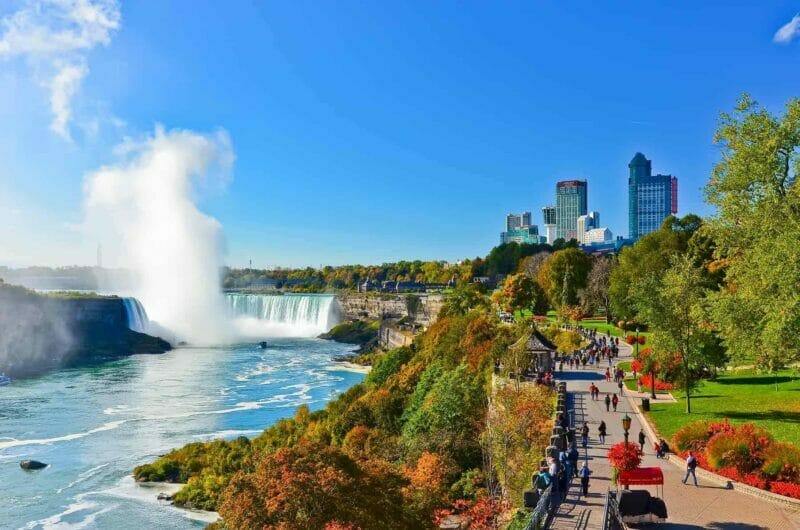
Expats choosing to move to Ontario often make Toronto their home. It’s a good choice for its multiculturalism and work opportunities, particularly in fields like biotechnology, IT, and engineering. However, it’s also the most expensive city in Canada; the average house price is around $760,000.
Montreal
If you are planning to move to Quebec Province, you should certainly consider living in Montreal. It’s culturally unique, and while it’s still a major city, it’s quite relaxed and peaceful.
Montreal is a beautiful city with a bilingual population. However, French is the more widely spoken language, so those without knowledge of it might struggle to integrate. It’s generally regarded as Canada’s cultural capital, and that should tell you almost all you need to know.
Ottawa
Ottawa is the capital city of Canada, which brings with it a certain expectation. It’s popular with those in the financial, technology, and healthcare sectors and is one of the most high-tech locations in North America. Ottawa is Toronto’s natural rival, and the two cities often go head to head in the Ottawa Vs Toronto competition.
Healthcare and health insurance in Canada
Canada uses the Medicare system, which is free at the point of use. It’s funded by taxpayers. The government classes the system as public health insurance, and you need an insurance card that you show at hospitals or clinics.
Provinces have individual health insurance plans but also provide free emergency cover, regardless of your health insurance status. There might be some restrictions based on your immigration status, but you’ll be told of these during your application.
Application forms are available at doctor’s surgeries, hospitals, pharmacies, and your provincial Ministry of Health office.
On top of public health insurance, you might need an extended plan. These cover anything classed as not basic, such as:
- Dental
- Prescription medication
- Physiotherapy
- Prescription glasses
Your employer may offer these extra packages as part of their health plan.
You can also buy private health insurance in Canada, which is advisable during the initial waiting period for your public health card. This can be up to three months, depending on the province.
Private health insurance in Canada works in the same way as pretty much every other country; your premium will be based on your age, health, and other factors.
Many expats opt for international health insurance. To make sure you get the best value for money, compare international health insurance options from various providers to find the best deal.
Education and schools
In Canada, there are both public and private schools.
Public schools
Public schools are free for Canadian residents. To enroll your child in a public school, you typically need to provide proof of your child’s age and legal status in Canada, as well as proof of your address within the school district.
How to enroll
To enroll your child in elementary or high school, contact your local school board. If there is more than one school in your district, register well before the upcoming school year to get into your preferred school.
| Province | Find your school board |
|---|---|
| Alberta | Alberta School Boards Association |
| British Columbia | BC School Trustees Association |
| Manitoba | Manitoba School Boards Association |
| New Brunswick | School Districts in New Brunswick |
| Newfoundland and Labrador | Newfoundland and Labrador English School District |
| Northwest Territories | Government of the Northwest Territories – Education |
| Nova Scotia | Nova Scotia School Boards Association |
| Nunavut | Nunavut Department of Education |
| Ontario | Ontario Federation of School Boards |
| Prince Edward Island | School Boards in PEI |
| Quebec | Québec Ministry of Education and Higher Education |
| Saskatchewan | Saskatchewan School Boards Association |
| Yukon | Yukon Department of Education |
Private schools
Private schools in Canada charge tuition fees, and the enrollment is not address-based.
On average, you can expect tuition fees for private schools to range from approximately $5,000 to $25,000 or more per year.
Private or independent day schools can range from $15,000 to $30,000 per year.
Private or independent boarding schools can range from $63,000 to $83,000 per year.
Alternative options
In addition to traditional schools, Canada has various alternative education options, such as French immersion programs, vocational schools, and special education programs for students with diverse needs.
The specific enrollment process and requirements can vary by province and territory, so it’s advisable to contact the local school district or the school of your choice for detailed information.
Cultural highlights
Here are some key cultural features of Canada that an expat should be aware of:
- Multiculturalism: Canada is known for its diverse multicultural society, with a mosaic of different cultures, languages, and traditions.
- Politeness: Canadians are generally polite, friendly, and respectful. Saying “please” and “thank you” is considered important in social interactions.
- Tolerance: Canada is known for its acceptance and respect for diversity. It promotes inclusiveness and equal rights for various ethnicities, religions, and gender identities.
- Bilingualism: Canada has two official languages: English and French. While English is widely spoken across the country, the province of Quebec is predominantly French-speaking.
- Outdoor lifestyle: Canadians often embrace outdoor activities and appreciate nature. Popular activities include hiking, skiing, canoeing, and camping.
- Weather variations: Canada has diverse weather conditions due to its vast size. Be prepared for colder temperatures during winters and potentially hot summers, depending on the region.
- Timeliness: Punctuality is generally appreciated in Canadian culture, so it’s important to be on time for appointments and meetings.
- Apologies: Canadians are known for apologizing frequently, even for small things. It’s considered polite to say sorry when necessary.
- Hockey: Ice hockey is a significant sport and a part of Canadian identity. Many Canadians are passionate about hockey and follow the NHL games enthusiastically.
- National holidays: Good Friday and Easter Monday (dates vary but are typically in April), Victoria Day on the Monday preceding May 25, Canada Day on July 1, Labour Day on the first Monday in September, Thanksgiving on the second Monday in October, Remembrance Day on November 11, and Christmas Day and Boxing Day on December 25 and 26, respectively.
To learn more, visit our guides on adapting to Canadian culture and Lifestyle in Canada.
Living in Canada – summary
Moving to a different country isn’t a light decision, but it can offer plenty of benefits. Living in Canada, for example, might seem ideal due to its job security, healthcare, and overall quality of life.
Hopefully, this guide has offered some useful information that’ll help you decide whether Canada is the right relocation destination for you.
You might find useful:
- Best Places To Live In Canada – an overview of Canada’s most popular expat locations.
- Which Is The Best Province To Live In Canada.
- 10 Top Reasons That Make Living in Victoria BC Amazing – a detailed overview of Victoria and why it might be the right place for you to move to.
Helpful external links:
- Canadian Government Immigration and Citizenship official website.
- Links to Provincial Healthcare sites
- Driving in Canada
- Official information for British citizens moving to and living in Canada – www.gov.uk.
- Canada’s quality of life – OECD

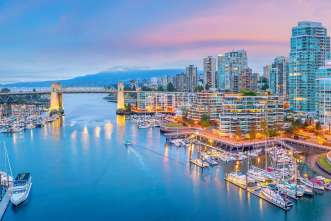
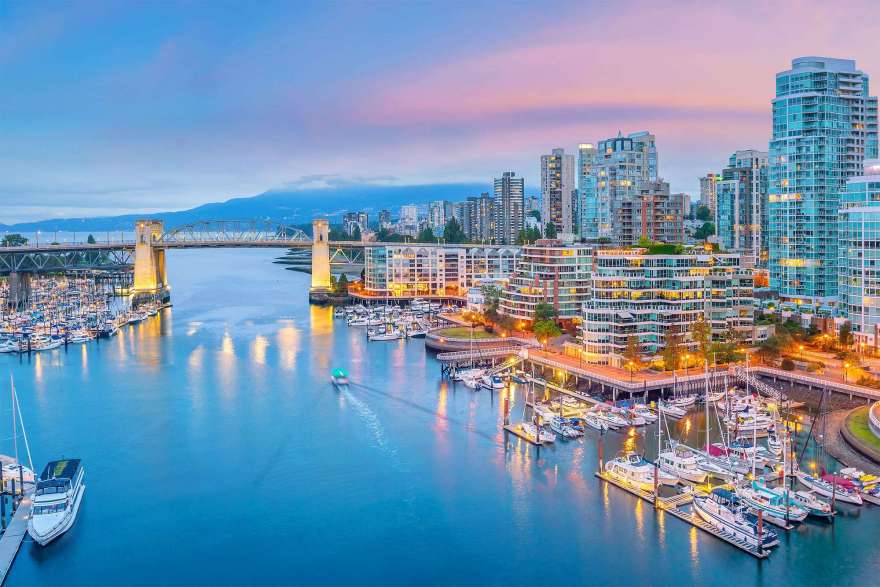
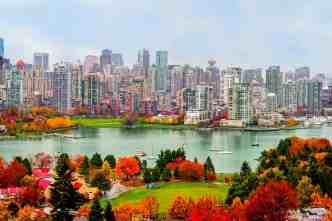
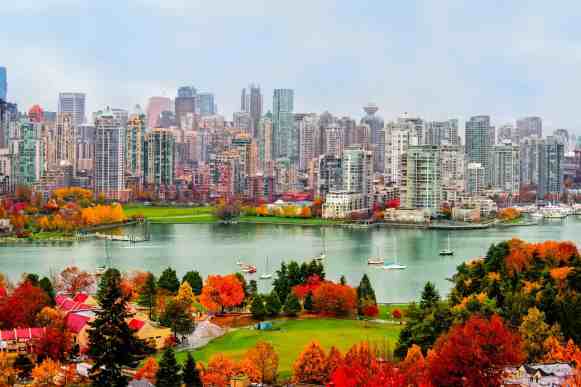
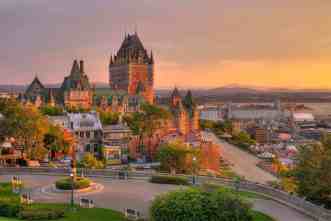
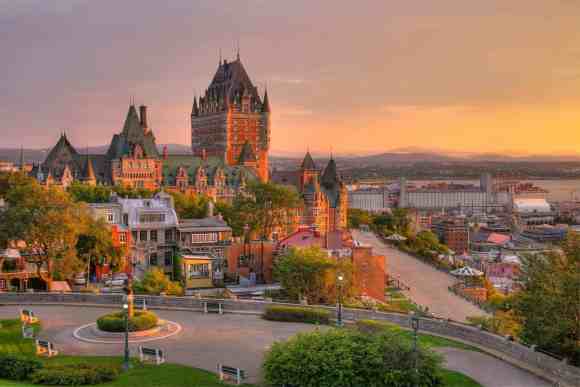


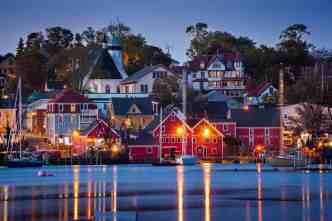
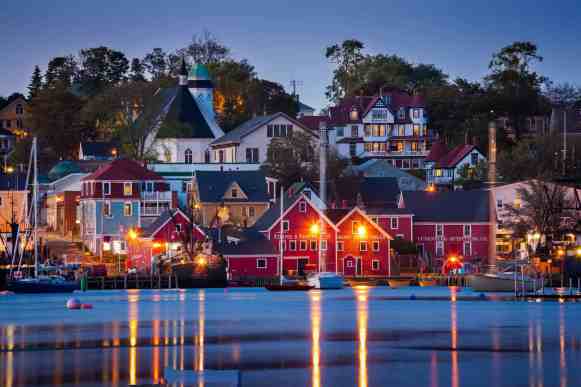
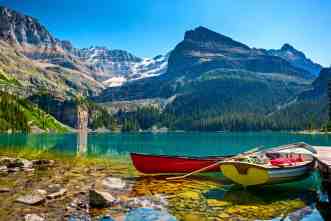



Can I work on visit in Canada and can I purchase property while I am on visit visa.
Hi Iqbal,
A visitor visa does not allow you to work in Canada. While you can job hunt on a visitor visa, you cannot apply for a work permit from within Canada even if you have a job offer. You must return to your country of residence to apply for the work permit at the appropriate Canadian visa office. You can buy a property in Canada while on a visitor visa. Hope this helps.
Want to invest in Canada
Kindly suggest
Just emailed you contact details